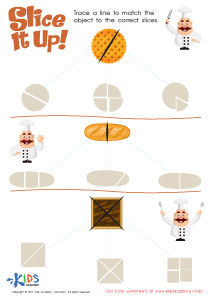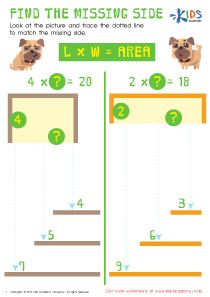Basic Math Skills Easy Fractions of Shapes Worksheets for Ages 5-8
4 filtered results
-
From - To
Discover our engaging "Easy Fractions of Shapes Worksheets" designed specifically for children aged 5-8! These worksheets provide a fun and interactive way for young learners to understand basic math skills, focusing on identifying and working with fractions in various shapes. Your child will develop essential mathematical concepts through colorful visuals and captivating activities. Perfect for homeschooling, classroom use, or casual learning, our resources encourage critical thinking and foster a love for math. Simple and effective, these worksheets are a great way to introduce young students to the world of fractions, leading to confidence and comprehension in their early math journey!
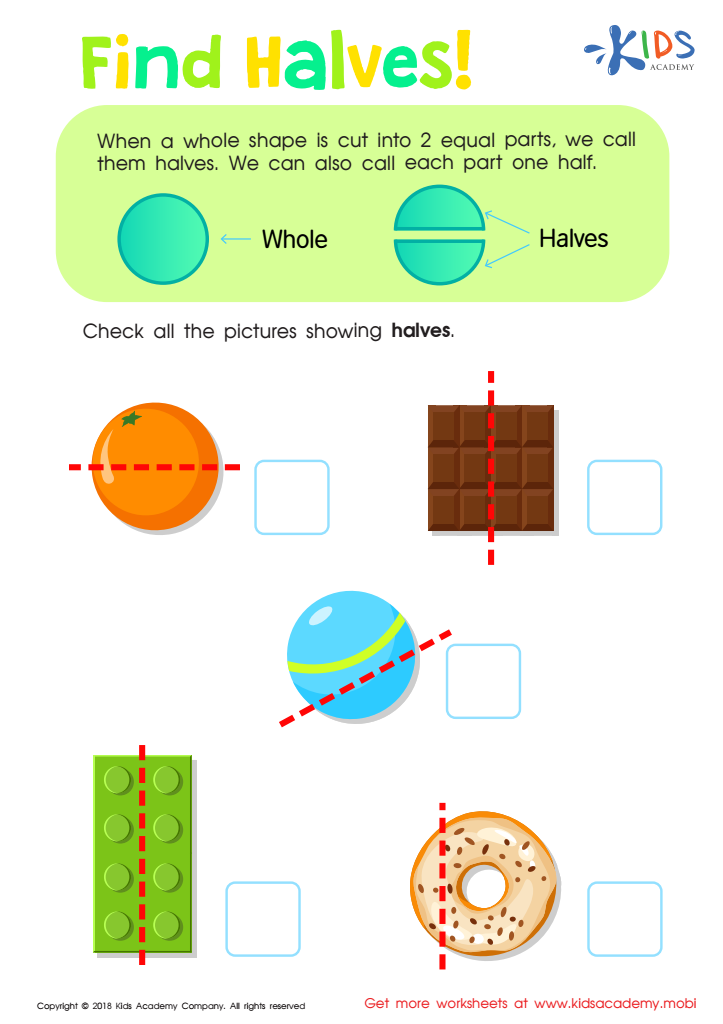

Find Halves Worksheet
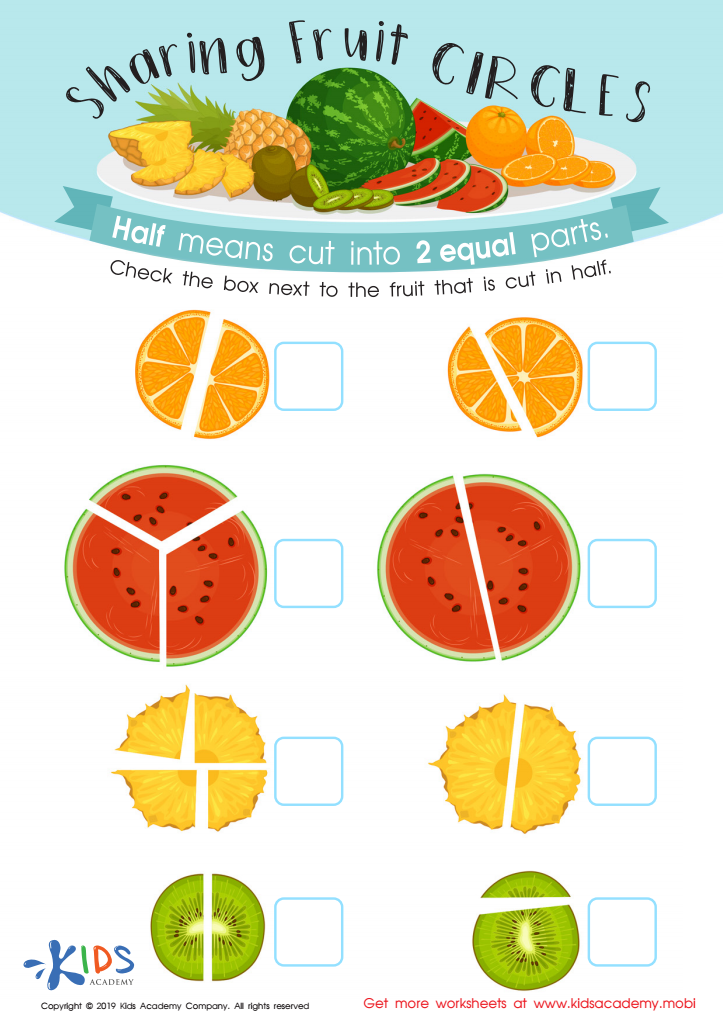

Sharing Fruit Circles Worksheet
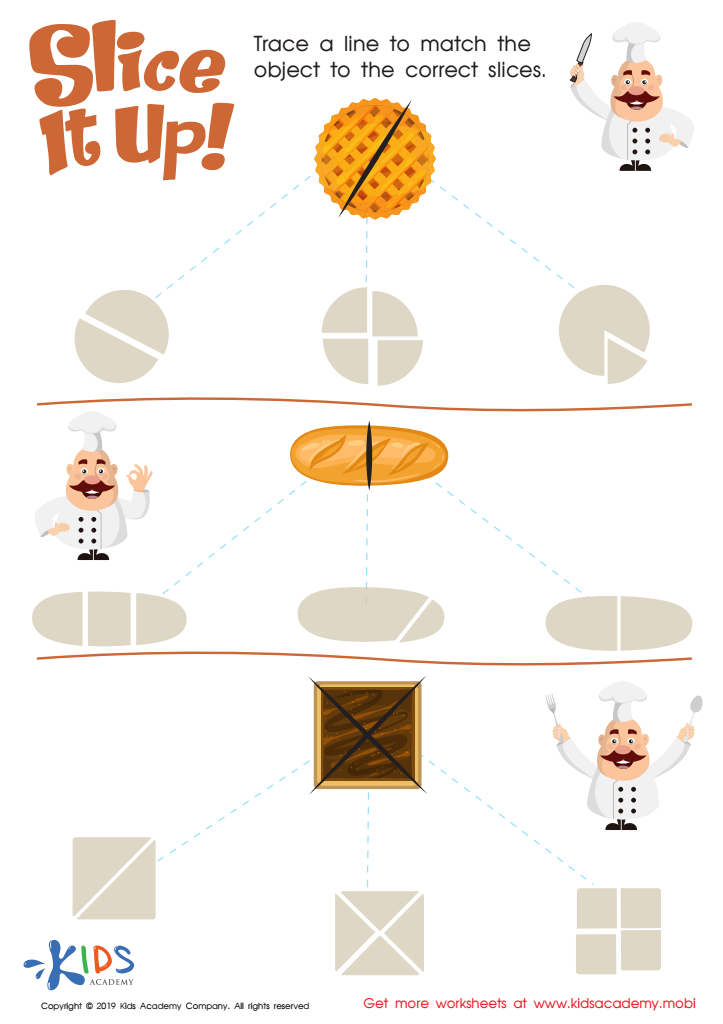

Slice It Up Worksheet
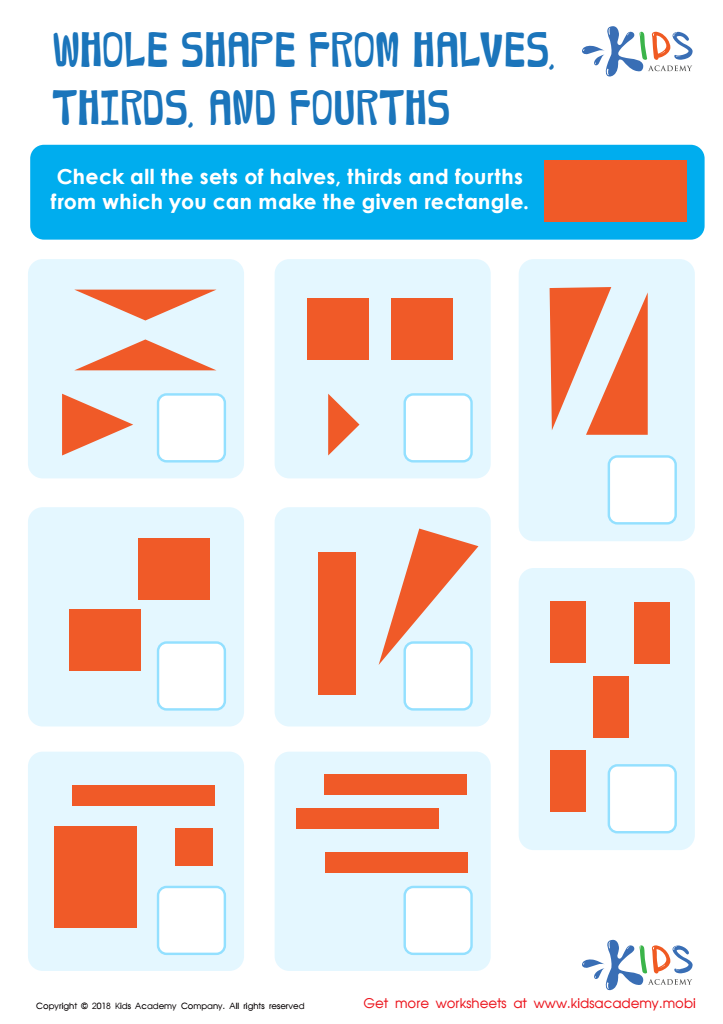

Whole Shape from Halves, Thirds and Fourths Worksheet
Basic math skills, especially understanding easy fractions of shapes, are crucial for children ages 5-8 as they form the foundation for their future mathematical learning and critical thinking. At this age, children are naturally curious and capable of grasping abstract concepts through hands-on experiences. Teaching fractions in the context of shapes helps make the idea of parts versus wholes tangible and visually appealing.
Parents and teachers should care because mastering these concepts promotes spatial awareness, enhances problem-solving skills, and boosts confidence in math. By introducing easy fractions, such as halves and quarters through fun, engaging activities—like cutting fruit or dividing shapes—it builds a strong mathematical foundation that can carry into more complex areas, including geometry and ratios.
Moreover, early comprehension of fractions fosters logical reasoning, encouraging children to think about relationships and comparisons. As math anxiety often develops early, positive experiences with basic math can help diminish negative feelings towards the subject later in life. Engaging children with fractions prepares them not only for academic success but also equips them with practical life skills, enabling them to make sense of the world around them more effectively. Therefore, investing time in these skills is essential for long-term educational development.

 Assign to My Students
Assign to My Students









